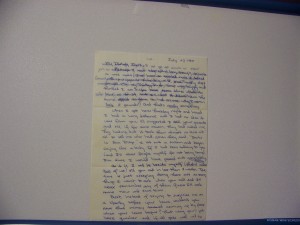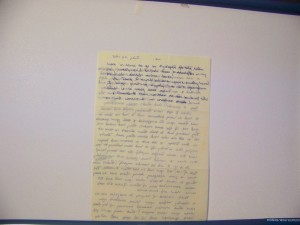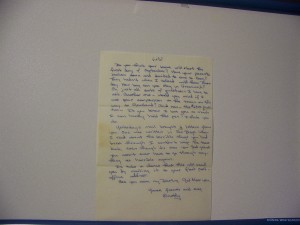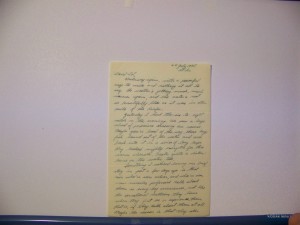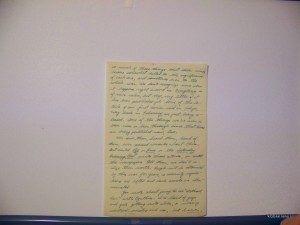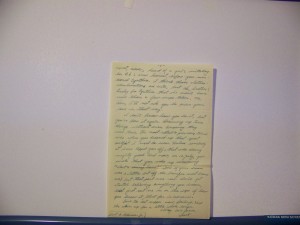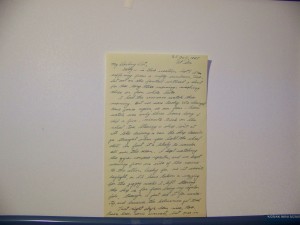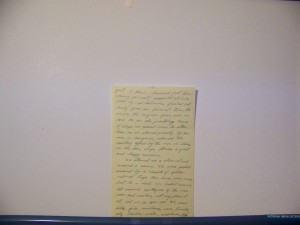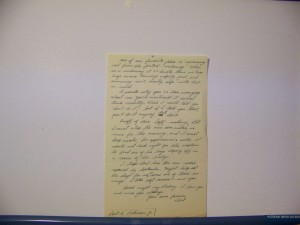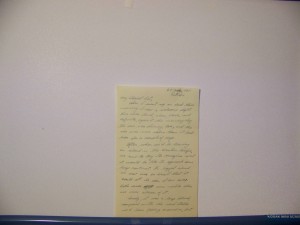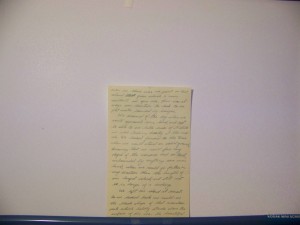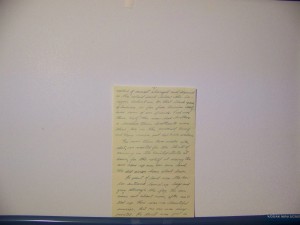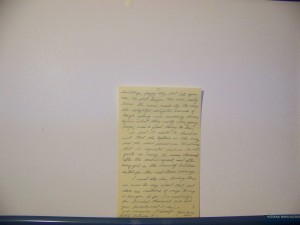As she begins to write a “wee note” Dot hopes she can stay calm enough to hold a pen. She hasn’t been able to settle down (or sleep) since she spoke with Dart’s parents on Thursday night. She’s thrilled! Although she knows he’s happy, too, she doubts the news had the same impact on him as it did her – she’s lost 5 pounds!
When she got home from babysitting Thursday night, she learned she’d had a long distance call, but had no idea from whom. El suggested she call Dart’s parents to see if they’d been the ones to phone. “When they said ‘Dart’s in San Diego,’ I let out a scream and began crying like a baby! If I had been talking to you (and I’ll never forgive myself for not being home) I’m sure I would have passed out completely.”
Now, she must wait for time to creep along until he calls her in approximately three weeks. There’s so much she wants to say to him. So many questions she has. To save time on the phone call, she decides to begin asking them now. Did she mention she had lots of questions?
Couldn’t he skip the idea of surprising her on a liberty and save the money instead? Couldn’t he use the money for a plane ticket? Wouldn’t that get him here quicker for his leave? Might that plan get him to Greenwich in time to go up to Sunapee for Labor Day? Will these butterflies in her stomach ever calm down? Have his parents agreed to come to Connecticut? How long will his leave be? Will it start by September 1? Would he object if she was his companion on the train back to Cleveland? And the big question: Does he know how much she loves him?
Yesterday’s mail brought six letters from Dart, including one he wrote in San Diego. “When I read about the terrible things you had been through I couldn’t keep the tears back, even though it’s over now. God grant you won’t have to go through anything as horrible again.”
“I’ll take the chance that this will reach you by mailing it to your fleet post office address. See you soon, my Darling.”
